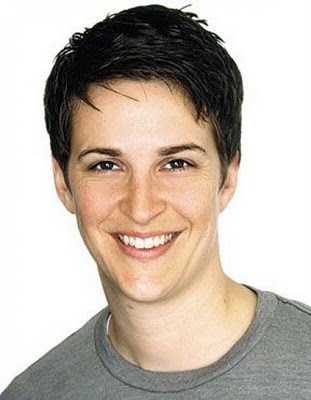Chloe Angyal: Why did you decide to make a documentary about the assassination of Dr. Tiller, and why did you feel so strongly about doing a larger-scale production about the anti-abortion movement?Rachel Maddow: When we covered the Tiller murder when it happened, two things became clear. As soon as you heard last May that a doctor had been killed in Kansas, if you knew anything about the fight over reproductive rights and the radical anti-abortion movement, it was instantly clear that it was George Tiller who was killed, even before you heard the name. I had heard that a doctor was killed in Kansas that Sunday, and knew it was Tiller before I saw in the news that it was Tiller. There are not that many things in America, where you know who’s going to get killed, because there’s a campaign against them that includes people who think that violence up to murder is justified against people with whom they disagree or who they’ve vilified. It’s an unusual thing in America – there aren’t a lot of things like that, so that in itself was shocking enough.
But there was also some smaller scale stuff about our covering it in day-to-day news way. We do daily production, we have to do a show five nights a week, and turn around things in a short time frame, and the Tiller murder and the Roeder conviction were things that we covered intensively, but on this day-to-day production schedule. And one of the things that we didn’t report on, or didn’t really follow up on because it wasn’t appropriate to report on in that day-to-day schedule was the fact that there was a ton of celebration online when Tiller was killed. And you don’t blame people for their blog comments, and you don’t make a news story out of anonymous commenters on the internet machine. If you did, you’d constantly be foretelling the end of the world. It’s not really appropriate to cover that as news, that anecdotal reaction. But reading that reaction online, on Twitter and in blog comments, not just in the dark anti-abortion extremist corners of the internet, but actually in relatively mainstream places, I found very unsettling. It stuck with me and it made me want to do something longer form, more investigative and more in-depth about the murder.
The fight over reproductive rights and the tactics of the radical anti-abortion movement are subjects that are a bummer. It’s something that we think of as almost unendurable, I think, to dwell on, to think about, because it seems like it never gets better, and like the other side never pays a price. And one of the things that I don’t think people have really grasps, which is in this documentary, is the story of George Tiller, who was resolute, cheerful, clever, holistically cognizant of what was going on as he was being attacked in this way.
At Tiller’s funeral, they made giant flower arrangement that said “Trust Women,” because that was his motto. You have to understand the other side, the radicals and their tactics, in order to understand what’s going on in the fight over reproductive rights. But in order to understand the way that people survive this, and the way that people can even hope to win these battles in the long run, understanding the way George Tiller did it is underappreciated. We’ve got these interviews of him that have never before run on television, and you see him, coming back to his clinic the day after he was shot and the day after his clinic was bombed, saying, “What we’re doing is legal. What these people are doing, these terroristic tactics and this anarchy, is illegal,” and putting up the sign outside his clinic: “Women need abortions and I’m going to do them.” And the devotion that his staff had to him, because of that resolution and that resilience that he had, that is a story worth telling about how to live in the face of threat, and how to live in the face of people who are coming at you in ways that are sometimes are very painful to think about. This is a painful story, but this is also an instructive story and a cathartic story for people who support reproductive rights.

